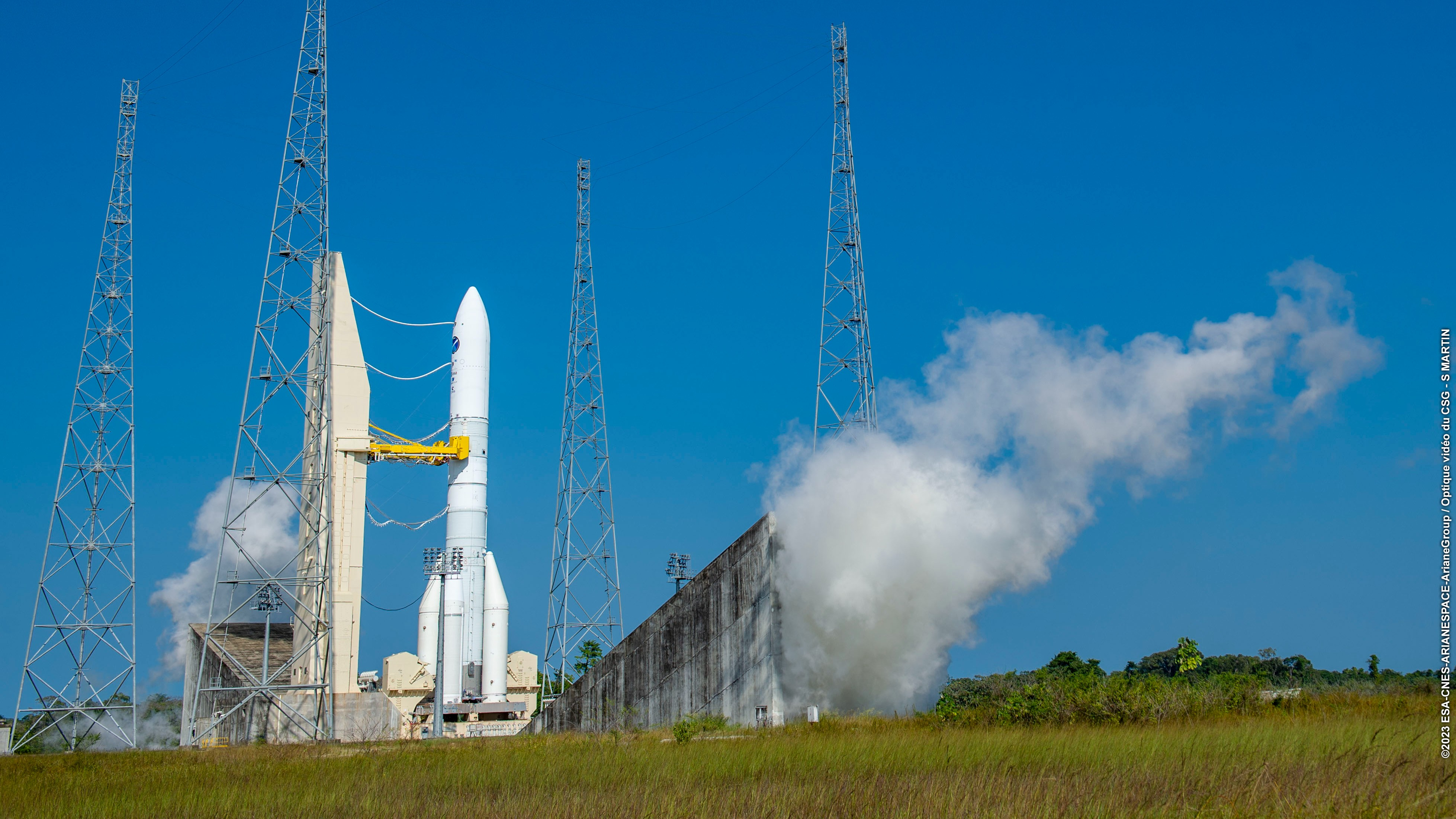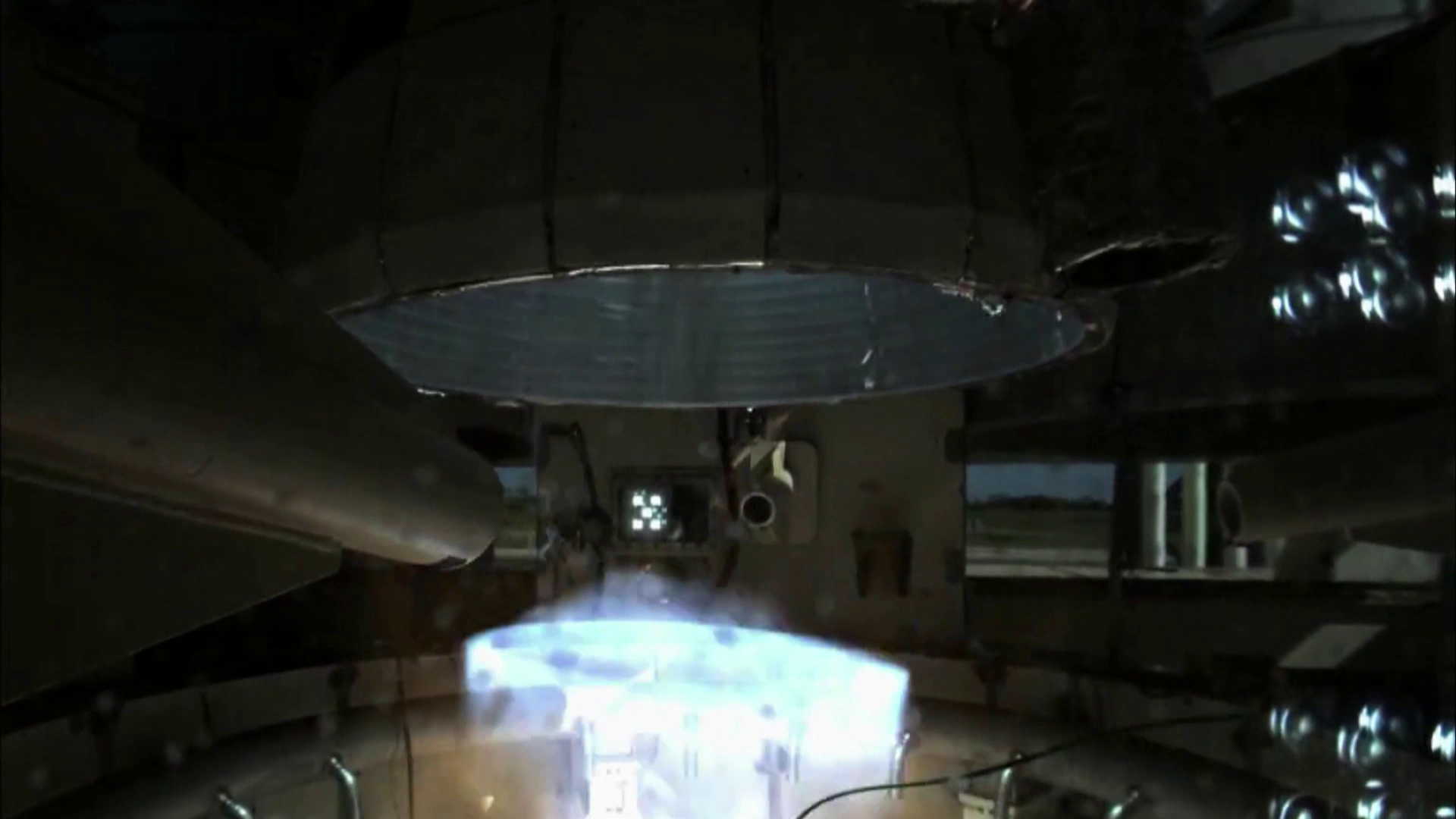
Ariane 6, the European Space Agency's (ESA) next-generation launch vehicle recently passed a major milestone as the rocket moves closer to its debut.
A Nov. 23 wet dress rehearsal put the spacecraft and its ground crews to the test, running through a full countdown and rocket fueling, and culminating in a 7-minute firing of the core stage's main engine.
A new video released by ESA and posted to the agency's YouTube channel highlights the Nov. 23 test in a timelapse compilation, condensing the rocket rollout and hot fire to about 2.5 minutes.
Related: Europe's new Ariane 6 rocket aces crucial 7-minute engine burn

The test took place at Europe's Spaceport in Kourou, French Guiana. As seen in the video, the Ariane 6 mobile launch bay was rolled away from the rocket and launchpad, undergoing the same procedures followed for an actual launch, before ground crews completed a simulated countdown.
The Ariane 6 is fixed with a single Vulcain 2.1 engine on its core stage, which burned through 165 tons (150 metric tons) of fuel during the Nov. 23 test — in the case of Ariane 6, a mixture of hydrogen and super-chilled liquid oxygen.
At launch, Ariane 6 is equipped with either two or four solid rocket boosters, which were not fired during the recent test. The second stage, which uses a smaller Vinci engine, will undergo its own hot-fire test in December. If successful, ESA expects Ariane 6's first launch sometime in 2024.
The 203-foot-tall (62-meters) rocket is meant to replace Europe's Ariane 5, which launched for the final time in July of this year. Ariane 6 was originally expected to be operational by 2020, but delays in the rocket's development have left Europe without a dedicated launch vehicle in the interim.







